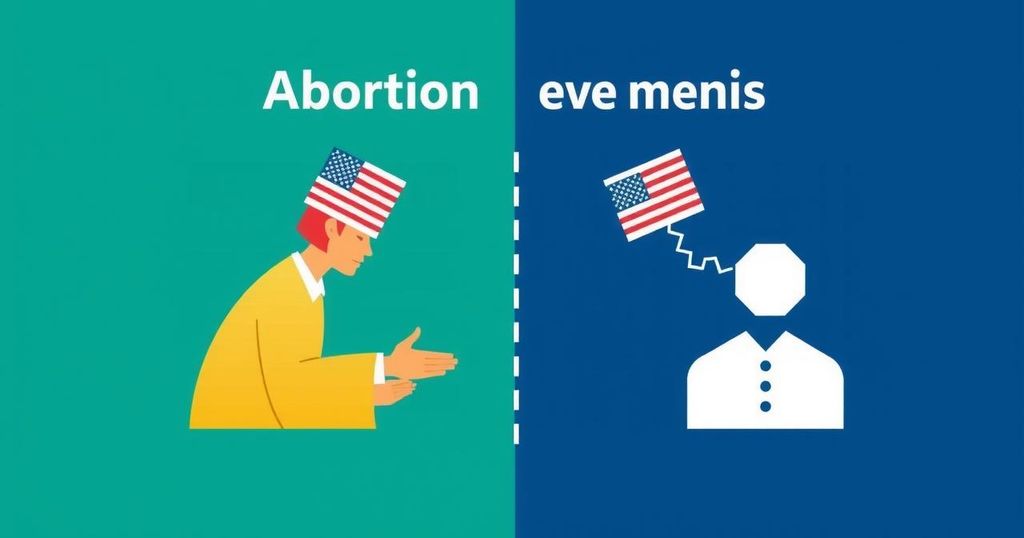Competing Ballot Measures Raise Questions Ahead of 2024 Election

Voters are faced with competing ballot measures regarding abortion and election processes as the 2024 presidential election approaches. Former President Trump aims for a decisive victory to prevent electoral manipulation while both parties brace for a potential legal showdown over election results. The number of electoral lawsuits has surged, and with various state rulings impacting election procedures, significant uncertainties loom over the integrity of the electoral process.
In the United States, voters are confronted with ballot measures regarding abortion rights and election procedures, prompting significant legal and political implications should both measures pass. Former President Donald Trump, the Republican nominee, emphasizes the need for an overwhelming victory in the forthcoming election to prevent any form of electoral manipulation, claiming, “We want a landslide,” and asserting, “We can’t let anything happen.” As election day approaches, both the Republican and Democratic parties are bracing for protracted disputes over electoral outcomes, amplified by numerous litigation efforts primarily initiated by Republicans. These lawsuits target various aspects of the voting process, including mail-in ballots and allegations of non-citizen voting. Despite Trump’s persistent allegations concerning the legitimacy of the previous election, he has yet to affirm his acceptance of the upcoming election results. Democrats caution that election deniers in vital roles may attempt to delegitimize valid election outcomes, which could lead to contentious legal challenges reminiscent of those seen in 2020. Michael Waldman of the Brennan Center articulates that the current landscape of election deniability is more organized and better funded than in previous cycles. The volume of election-related litigation has surged, with nearly 180 cases filed this year alone. Notably, the political climate surrounding these lawsuits reflects a strategic inclination toward litigation that serves to amplify political messaging rather than solely aiming for judicial victory. With significant financial backing from outside organizations, the trend of litigating electoral disputes is poised to persist. Recent rulings have raised questions about the legality of state election procedures, such as those in Georgia, where a judge deemed several election rules unacceptable. Despite legal frameworks in place for both affirming and challenging electoral results, there remains a potential for confusion and disorder, especially in closely contested races. According to election law experts, failing to certify results, even if ultimately unfounded, can significantly disrupt the electoral process and propagate false narratives surrounding election integrity.
The current political landscape in the United States is dominated by intense debates over abortion rights and election integrity, particularly as the nation approaches the 2024 presidential election. Former President Donald Trump’s refusal to accept the outcomes of the previous election continues to resonate with many within the Republican Party. This situation sets the stage for ongoing legal battles over electoral rules and ballot measures that could influence voter turnout and the legitimacy of the electoral process. Extensive litigation organized around voting rights and election laws has emerged as a prominent feature of contemporary political contests, heavily funded by both party resources and outside donors. The ramifications of these legal challenges extend to how results are validated and certified, creating a backdrop of uncertainty and potential conflict in the democratic process.
The intertwining of ballot measures on pivotal issues such as abortion and elections evokes numerous legal and political strategies that could impact the realization and acceptance of electoral results in the upcoming election cycle. With increased judicial challenges anticipated, particularly among election deniers, it is imperative for both voters and electoral officials to navigate these complexities. The growing trend of election-related litigation signals the importance of safeguarding electoral integrity while also addressing the evolving political narratives that seek to influence public perception and trust in the electoral system.
Original Source: apnews.com





